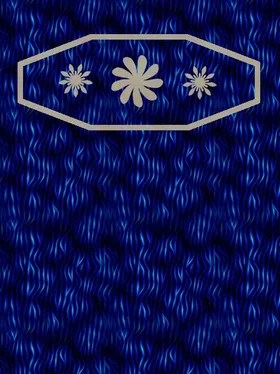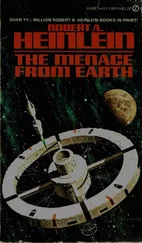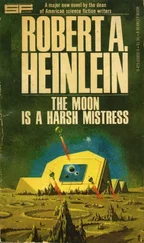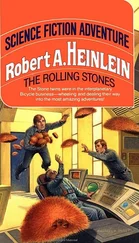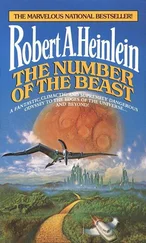Robert Heinlein - The Past Through Tomorrow
Здесь есть возможность читать онлайн «Robert Heinlein - The Past Through Tomorrow» весь текст электронной книги совершенно бесплатно (целиком полную версию без сокращений). В некоторых случаях можно слушать аудио, скачать через торрент в формате fb2 и присутствует краткое содержание. Жанр: Фантастика и фэнтези, на английском языке. Описание произведения, (предисловие) а так же отзывы посетителей доступны на портале библиотеки ЛибКат.
- Название:The Past Through Tomorrow
- Автор:
- Жанр:
- Год:неизвестен
- ISBN:нет данных
- Рейтинг книги:5 / 5. Голосов: 1
-
Избранное:Добавить в избранное
- Отзывы:
-
Ваша оценка:
- 100
- 1
- 2
- 3
- 4
- 5
The Past Through Tomorrow: краткое содержание, описание и аннотация
Предлагаем к чтению аннотацию, описание, краткое содержание или предисловие (зависит от того, что написал сам автор книги «The Past Through Tomorrow»). Если вы не нашли необходимую информацию о книге — напишите в комментариях, мы постараемся отыскать её.
The Past Through Tomorrow — читать онлайн бесплатно полную книгу (весь текст) целиком
Ниже представлен текст книги, разбитый по страницам. Система сохранения места последней прочитанной страницы, позволяет с удобством читать онлайн бесплатно книгу «The Past Through Tomorrow», без необходимости каждый раз заново искать на чём Вы остановились. Поставьте закладку, и сможете в любой момент перейти на страницу, на которой закончили чтение.
Интервал:
Закладка:
"Certainly, certainly! I understand basic ballistics, Mister. But why do you reject the other alternative? Why not increase our speed? Why can't I accelerate directly along my present course if I choose?"
Libby looked worried. "The Captain may, if he so orders. But it would be an attempt to exceed the speed of light. That has been assumed to be impossible-"
"That's exactly what I was driving at: 'Assumed.' I've always wondered if that assumption was justified. Now seems like a good time to find out."
Libby hesitated, his sense of duty struggling against the ecstatic temptations of scientific curiosity. "If this were a research ship, Captain, I would be anxious to try it. I can't visualize what the conditions would be if we did pass the speed of light, but it seems to me that we would be cut off entirely from the electromagnetic spectrum insofar as other bodies are concerned. How could we see to astrogate?"
Libby had more than theory to worry him; they were "seeing" now only by electronic vision. To the human eye itself the hemisphere behind them along their track was a vasty black; the shortest radiations had dopplered to wavelengths too long for the eye. In the forward direction stars could still be seen but their visible "light" was made up of longest Hertzian waves crowded in by the ship's incomprehensible speed. Dark "radio stars" shined at first magnitude; stars poor in radio wavelengths had faded to obscurity. The familiar constellations were changed beyond easy recognition. The fact that they were seeing by vision distorted by Doppler's effect was confirmed by spectrum analysis; Fraunhofer's lines had not merely shifted toward the violet end, they had passed beyond, out of sight, and previously unknown patterns replaced them.
"Hmm..." King replied. "I see what you mean. But I'd certainly like to try it, damn if I wouldn't! But I admit it's out of the question with passengers inboard. Very well, prepare for me roughed courses to type '0' stars lying inside this trumpet-flower locus of yours and not too far away. Say ten light-years for your first search."
"Yes, sir. I have. I can't offer anything in that range in the '0' types."
"So? Lonely out here, isn't it? Well?'
"We have Tau Ceti inside the locus at eleven light-years." -
"A 05, eh? Not too good."
"No, sir. But we have a true Sol type, a 02-catalog ZD9817. But it's more than twice as far away."
Captain King chewed a knuckle. "I suppose I'll have to put it up to the elders. How much subjective time advantage are we enjoying?"
"I don't know, sir."
"Eh? Well~ work it out! Or give me the data and I will. I don't claim to be the mathematician you are, but any cadet could solve that one. The equations are simple enough." -
"So they are, sir. But I don't have the data to substitute in the time-contraction equation.... because I have no way now to measure the ship's speed. The violet shift is useless to use; we don't know what the lines mean. I'm afraid we must wait until we have worked up a much longer baseline."
King sighed. "Mister, I sometimes wonder why I got into this business. Well, are you willing to venture a best guess? Long time? Short time?"
"Uh... a long time, sir. Years."
"So? Well, I've sweated it out in worse ships. Years, eh? Play any chess?"
"I have, sir." Libby did not mention that he had given up the game long ago for lack of adequate competition.
"Looks like we'd have plenty of time to play. King's pawn;to king four."
"King's knight to bishop three."
"An unorthodox player, eh? Well, I'll answer you later. I suppose I'd better try to sell them the 02 eyen though it takes longer... and I suppose I'd better caution Ford to start some contests and things. Can't have 'em getting coffin fever."
"Yes, sir. Did I mention deceleration time? It works out to just under one Earth year, subjective, at a negative one-gee, to slow us to stellar speeds."
"Eh? We'll decelerate the same way we accelerated-with your light-pressure drive."
Libby shook his head. "I'm sorry, sir. The drawback of the light-pressure drive is that it makes no difference what your previous course and speed may be; if you go inertialess in the near neighborhood of a star, its light pressure kicks you away from it like a cork hit by a stream of water. Your previous momentum is canceled out when you cancel your inertia."
"Well," King conceded, "let's assume that we will follow your schedule. I can't argue with you yet; there are still some things about that gadget of yours that I don't understand."
"There are lots of things about it," Libby answered seriously, "that I don't understand either."
The ship had flicked by Earth's orbit less than ten minutes after Libby cut in his space drive. Lazarus and he had discussed the esoteric physical aspects of it all the way to the orbit of Mars-less than a quarter hour. Jupiter's path was far distant when Barstow called the organization conference. But it killed an hour to find them all in the crowded ship; by the time he called them to order they were a billion miles out beyond the orbit of Saturn-elapsed time from "Go!" less than an hour and a half.
But the blocks get longer after Saturn. Uranus found them still in discussion. Nevertheless Ford's name was agreed on and he had accepted before the ship was as far from the Sun as is Neptune. King had been named captain, had toured his new command with Lazarus as guide, and was already in conference with his astrogator when the ship passed the orbit of Pluto nearly four billion miles deep into space, but still less than six hours after the Sun's light had blasted them away.
Even then they were not outside the Solar System, but between them and the stars lay nothing but the winter homes of Sol's comets and hiding places of hypothetical trans-Plutonian planets-space in which the Sun holds options but can hardly be said to own in fee simple. But even the nearest stars were still light-years away. New Frontiers was headed for them at a pace which crowded the heels of light-weather cold, track fast.
Out, out, and still farther out... out to the lonely depths where world lines are almost straight, undistorted by gravitation. Each day, each month... each year... their headlong flight took them farther from all humanity.
PART TWO
The ship lunged on, alone in the desert of night, each lightyear as empty as the last. The Families built up a way of life in her.
The New Frontiers was approximately cylindrical. When not under acceleration, she was spun on her axis to give pseudo-weight to passengers near the outer skin of the ship; the outer or "lower" compartments were living quarters while the innermost or "upper" compartments were store-rooms and so forth. Between compartments were shops, hydroponic farms and such. Along the axis, fore to aft, were the control room, the converter, and the main drive.
The design will be recognized as similar to that of the larger free-flight interplanetary ships in use today, but it is necessary to bear in mind her enormous size. She was a city, with ample room for a colony of twenty thousand, which would have allowed the planned complement of ten thousand to double their numbers during the long voyage to Proxima Centauri.
Thus, big as she was, the hundred thousand and more of the Families found themselves overcrowded fivefold.
They put up with it only long enough to rig for cold-sleep. By converting some recreation space on the lower levels to storage, room was squeezed out for the purpose. Somnolents require about one per cent the living room needed by active, functioning humans; in time the ship was roomy enough for those still awake. Volunteers for cold-sleep were not numerous at first-these people were more than commonly aware of death because of their unique heritage; cold-sleep seemed too much like the Last Sleep. But the great discomfort of extreme overcrowding combined with the equally extreme monotony of the endless voyage changed their minds rapidly enough to provide a steady supply for the little death as fast as they could be accommodated.
Читать дальшеИнтервал:
Закладка:
Похожие книги на «The Past Through Tomorrow»
Представляем Вашему вниманию похожие книги на «The Past Through Tomorrow» списком для выбора. Мы отобрали схожую по названию и смыслу литературу в надежде предоставить читателям больше вариантов отыскать новые, интересные, ещё непрочитанные произведения.
Обсуждение, отзывы о книге «The Past Through Tomorrow» и просто собственные мнения читателей. Оставьте ваши комментарии, напишите, что Вы думаете о произведении, его смысле или главных героях. Укажите что конкретно понравилось, а что нет, и почему Вы так считаете.
